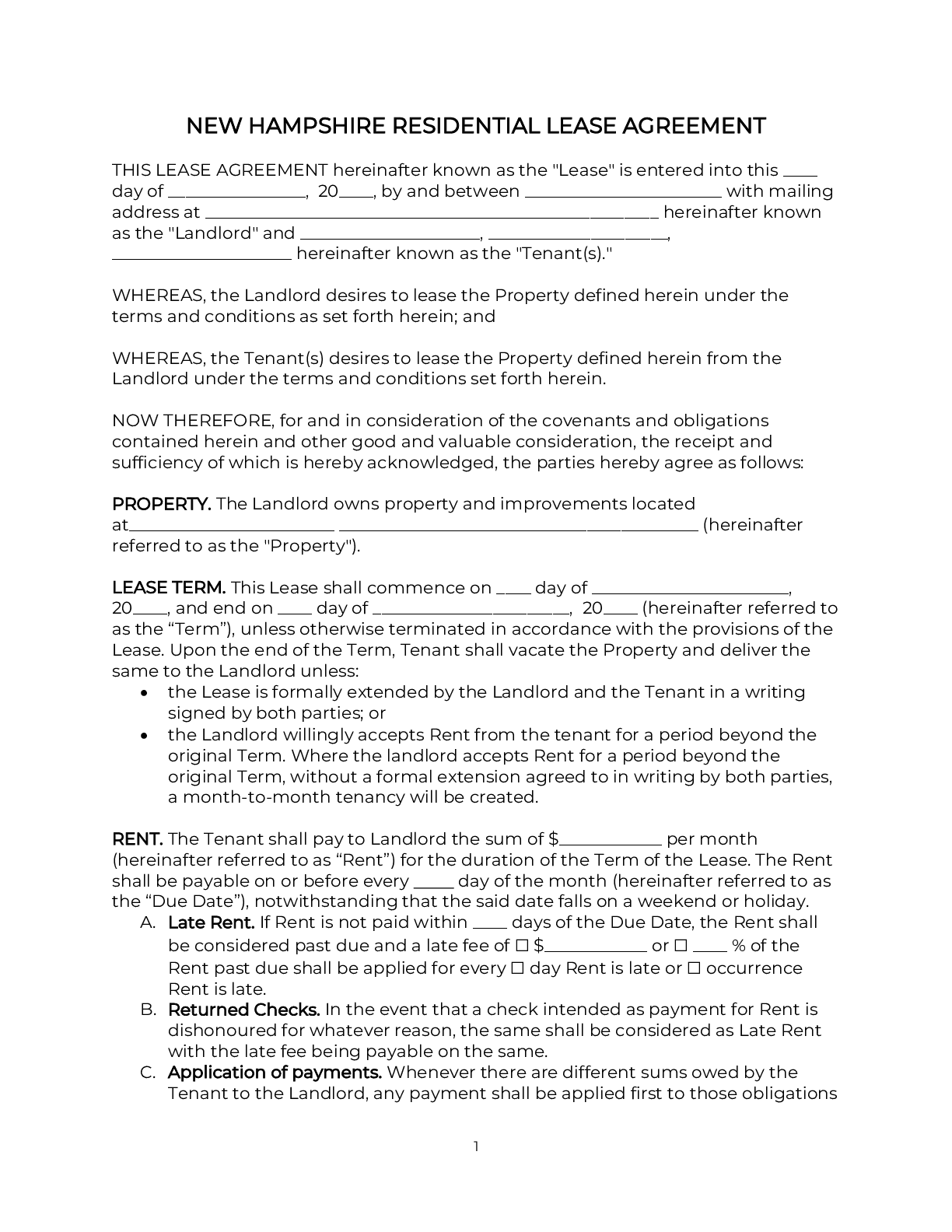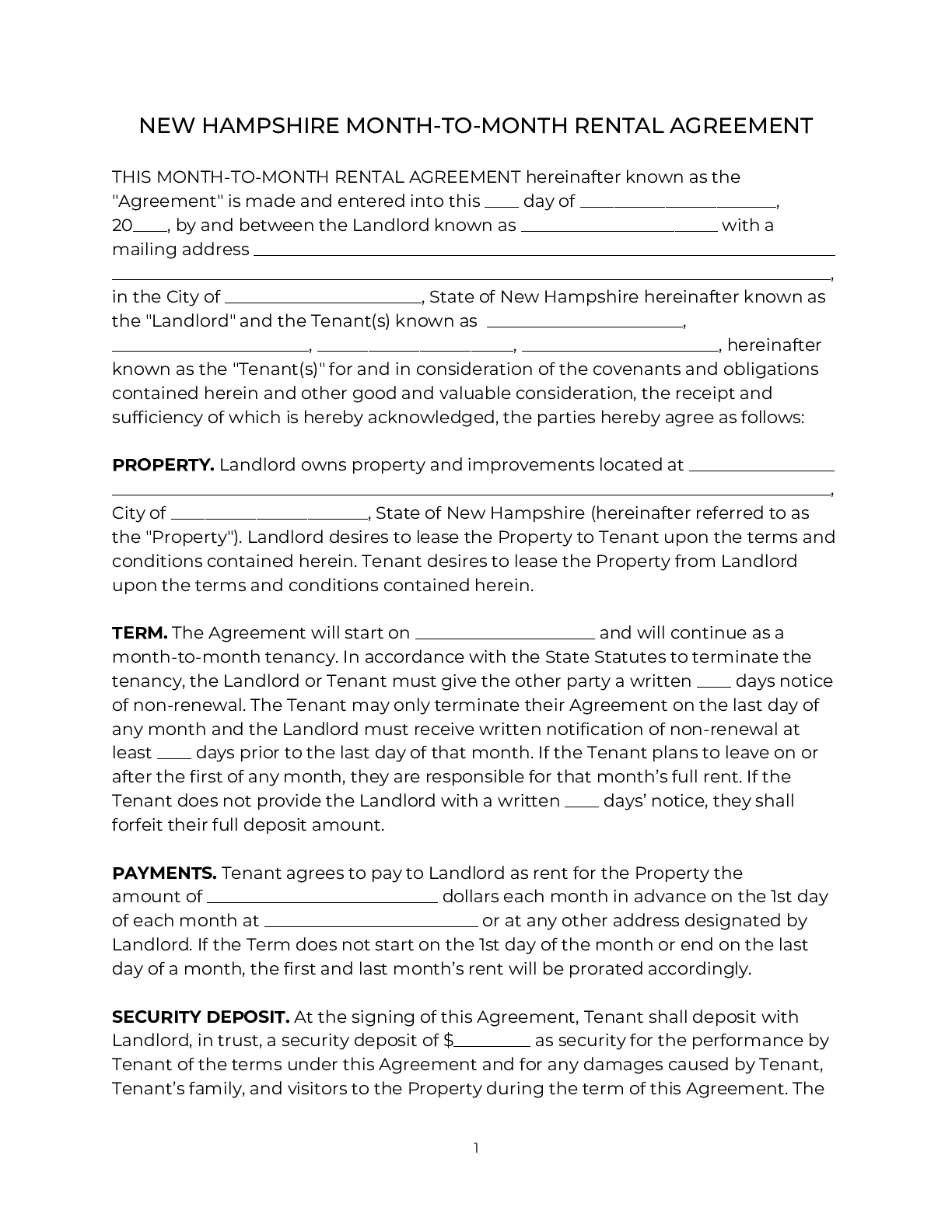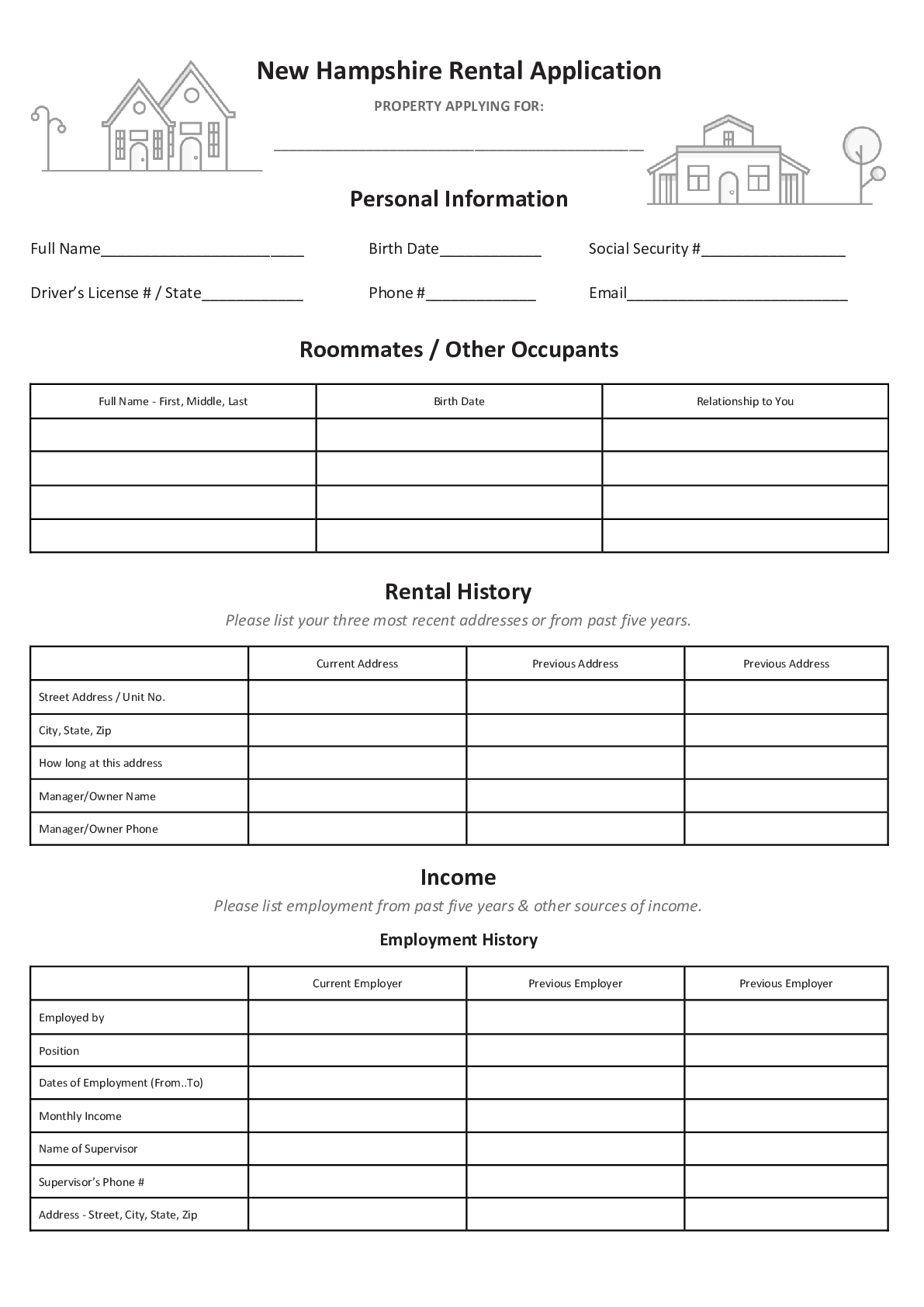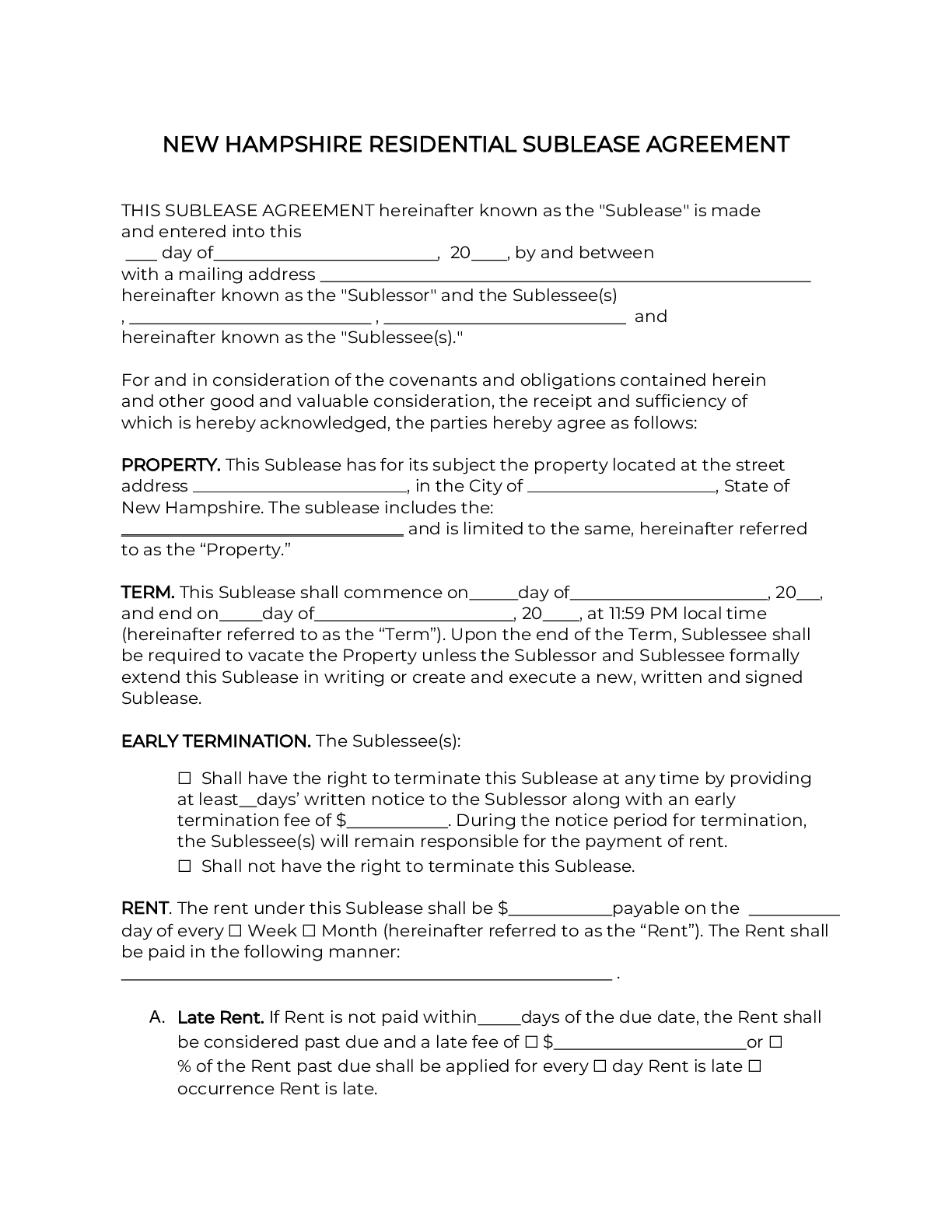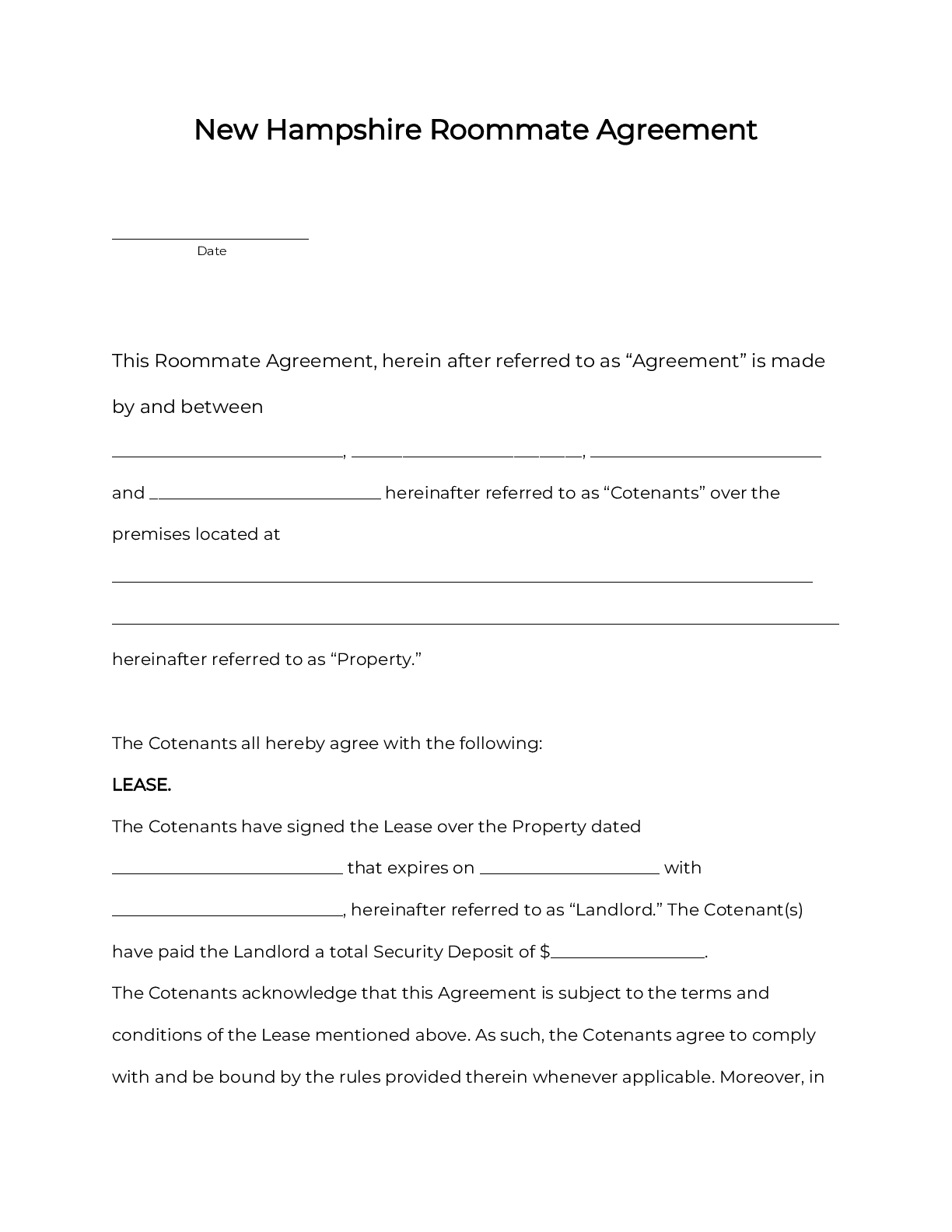A New Hampshire rental agreement is a legal contract between a landlord overseeing a rental property and a tenant using the property. New Hampshire landlord-tenant law governs and regulates these agreements.
New Hampshire Rental Agreement Types
A New Hampshire roommate agreement is a legal contract between two or more people (“co-tenants”) who share a rental property according to rules they set, including for things like splitting the rent. This agreement binds the co-tenants living together, and doesn’t include the landlord.
New Hampshire Required Residential Lease Disclosures
- Move-In Checklist (required for some leases) – New Hampshire landlords can’t charge a security deposit unless they provide a move-in checklist to inventory any existing property damage. The tenant must confirm the contents of of the checklist. This helps ensure accurate deductions upon move-out.
- Security Deposit Holdings Disclosure (required for some) leases – New Hampshire landlords must provide tenants with the holding institution and account number when collecting a security deposit.
- Lead Based Paint Disclosure (required for some leases) – Landlords must provide an EPA-approved disclosure and informational pamphlet to tenants renting any property built before 1978.
To learn more about required disclosures in New Hampshire, click here.
New Hampshire Landlord Tenant Laws
- Warranty of Habitability – New Hampshire landlords can only rent out habitable property. This means providing certain basic health and safety features like heat, plumbing, and electricity. Landlords must repair any issues within 14 days after proper notice. Failure to repair lets a tenant sue the landlord or terminate the lease. Tenants usually can’t repair and deduct, or withhold rent.
- Evictions – New Hampshire landlords may evict for rent default, lease violations, or illegal acts, among other things. Before filing eviction, landlords must serve tenants with prior notice to pay or quit, depending on the eviction type. This means most evictions in New Hampshire take between about a week to over a month.
- Security Deposits – New Hampshire limits most security deposits to $100 or 1 month’s rent (whichever is greater), although there are exceptions. When the lease ends, a landlord must return any unused portion of a tenant’s deposit within 30 days.
- Lease Termination – New Hampshire allows tenants to end a month-to-month lease with 30 days of advance notice. Terminating a fixed-term lease usually requires active military duty, landlord harassment, uninhabitable property, or domestic abuse.
- Rent Increases and Fees – New Hampshire does not limit the amount of a rent increase. Landlords must provide notice of a rent increase at least 30 days in advance. New Hampshire does not limit late fees. Returned check fees have a $25 cap unless there’s an express written agreement providing for another amount.
- Landlord Entry – New Hampshire landlords may enter rental property for reasonable business purposes, like maintenance and inspections. Required notice before entry is at least 48 hours for some inspections.
- Settling Legal Disputes – New Hampshire lets small claims courts hear landlord-tenant disputes, as long as the value in controversy is under $10,000. Evictions are not allowed in small claims. New Hampshire has a three-year statute of limitations for most landlord-tenant issues.
To learn more about landlord tenant laws in New Hampshire, click here.
Sources
- 1 N.H. Rev. Stat. Ann. § 358-C:5(1)
-
A creditor involved in a consumer credit transaction or a debt collector designated to collect on a check, negotiable order of withdrawal, share draft, or other negotiable instrument may charge and receive a check collection charge of not more than $25, unless otherwise expressly authorized by written agreement with the consumer.
Source Link - 2 N.H. Rev. Stat. Ann. § 540-A:3(V-b)(b)
-
No tenant shall willfully refuse the landlord access to the premises to:
…
(b) Evaluate whether bedbugs are present after the landlord has received notice that bed bugs are present in a dwelling unit adjacent to the premises or a dwelling unit that is directly above or below the premises, provided the landlord gives the tenant 48 hours written notice of his or her need to enter the premises to evaluate whether bed bugs are present.
Source Link




